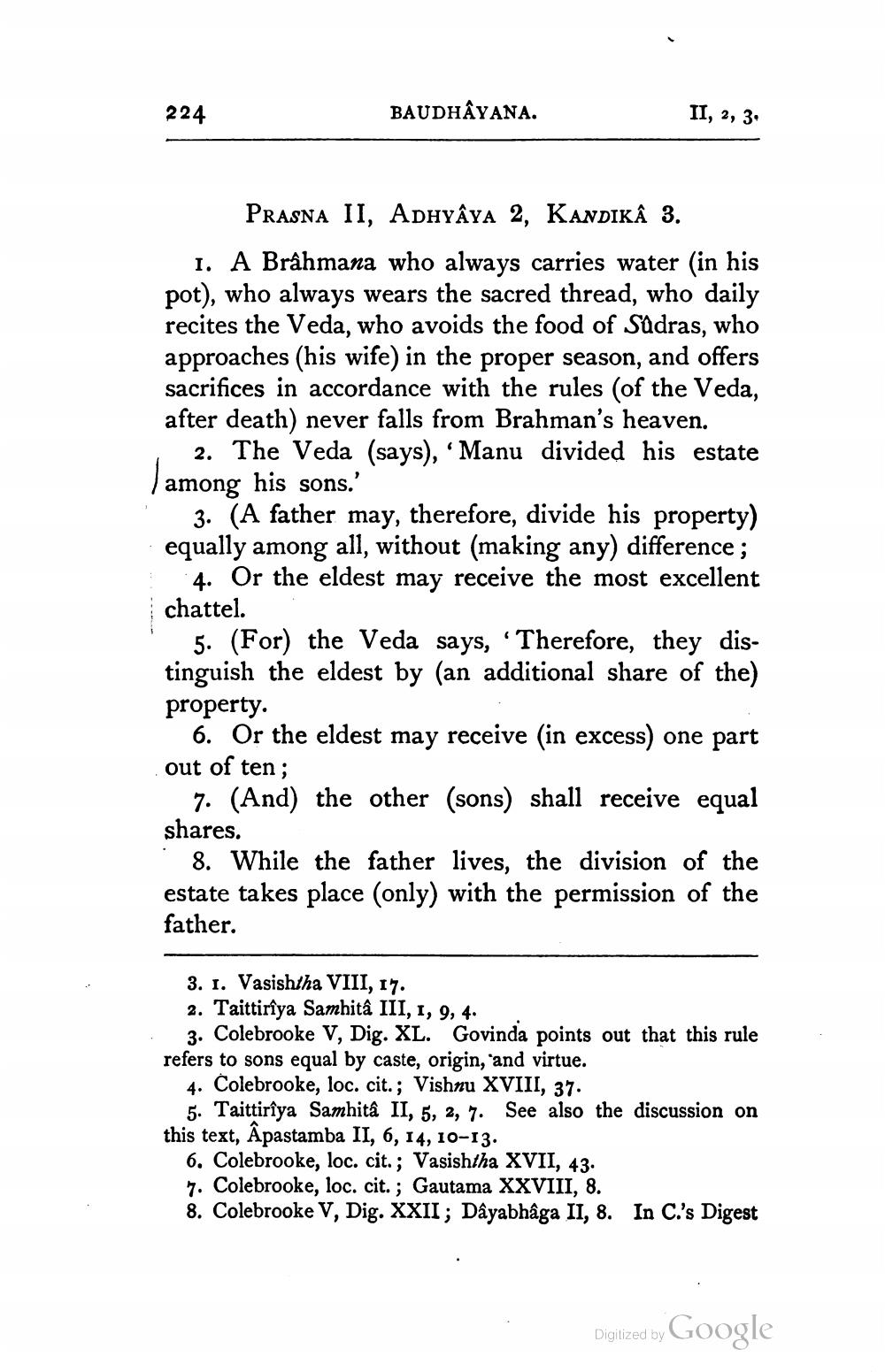________________
224
BAUDHÂYANA.
II, 2, 3,
PRASNA II, ADHYAYA 2, KANDIKÂ 3. 1. A Brâhmana who always carries water (in his pot), who always wears the sacred thread, who daily recites the Veda, who avoids the food of Sudras, who approaches (his wife) in the proper season, and offers sacrifices in accordance with the rules (of the Veda, after death) never falls from Brahman's heaven.
2. The Veda (says), ‘Manu divided his estate among his sons.'
3. (A father may, therefore, divide his property) equally among all, without (making any) difference;
4. Or the eldest may receive the most excellent chattel.
5. (For) the Veda says, 'Therefore, they distinguish the eldest by (an additional share of the) property.
6. Or the eldest may receive (in excess) one part out of ten;
7. (And) the other (sons) shall receive equal shares.
8. While the father lives, the division of the estate takes place (only) with the permission of the father.
3. 1. Vasishtha VIII, 17. 2. Taittirîya Samhitâ III, 1, 9, 4.
3. Colebrooke V, Dig. XL. Govinda points out that this rule refers to sons equal by caste, origin, and virtue.
4. Colebrooke, loc. cit.; Vishnu XVIII, 37.
5. Taittirîya Samhitâ II, 5, 2, 7. See also the discussion on this text, Apastamba II, 6, 14, 10-13.
6. Colebrooke, loc. cit.; Vasishtha XVII, 43. 7. Colebrooke, loc. cit.; Gautama XXVIII, 8. 8. Colebrooke V, Dig. XXII; Dâyabhaga II, 8. In C.'s Digest
Digitized by Google




